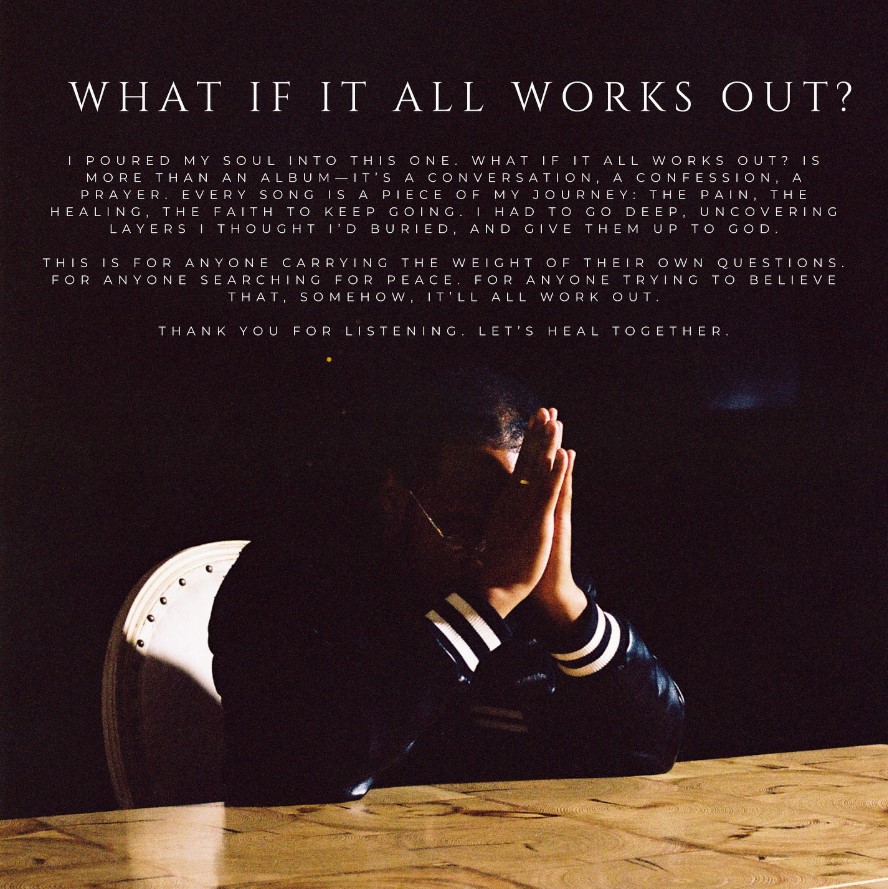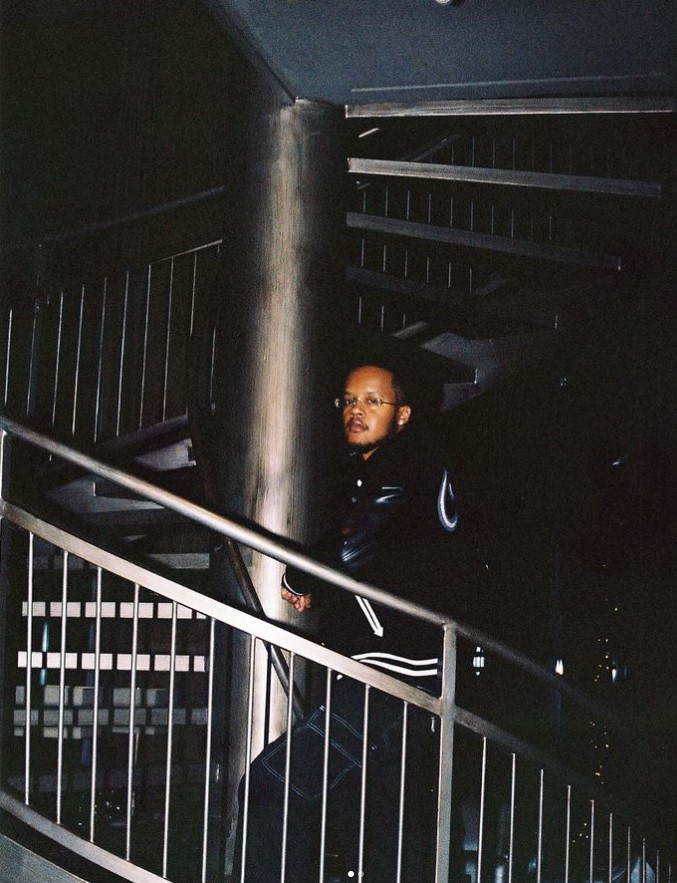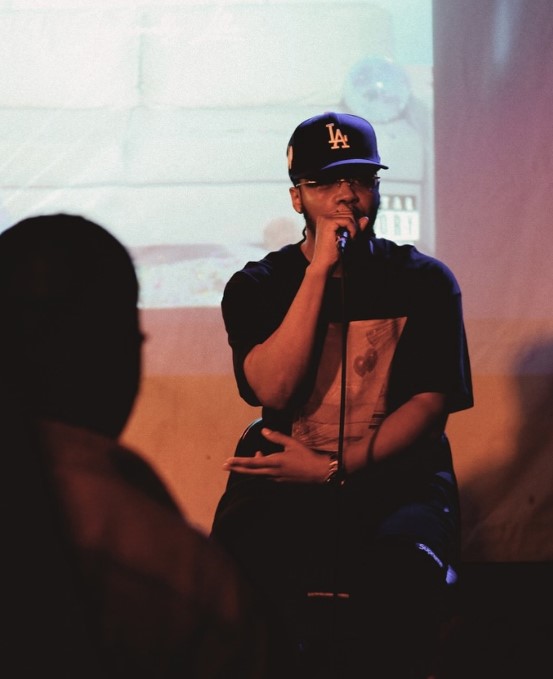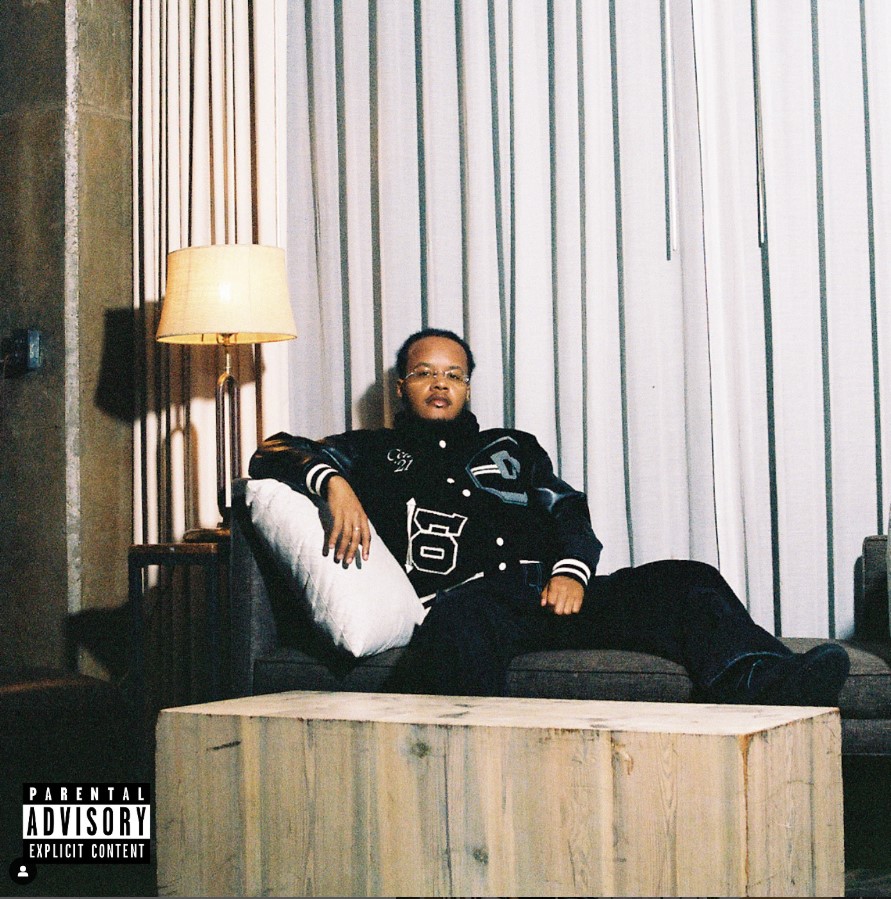Tymain Robbins‘ latest album, What If It All Works Out? invites listeners on a deeply introspective journey into his inner world. Set against the intimate backdrop of a therapy session, this 14-track collection delves into Robbins’ most profound thoughts and emotions. Each song weaves a compelling narrative, exploring artistic growth, post-college dilemmas, family and friendship dynamics, childhood experiences, financial pressures, and the evolving nature of his long-term relationship.
The North Carolina wordsmith also confronts imposter syndrome, emphasizing the importance of leaning on faith during moments of doubt and uncertainty. Through his versatile approach and creative delivery, Robbins pushes musical boundaries, crafting songs that feel both deeply personal and universally relatable. With each track tied into the overarching therapy concept, What If It All Works Out? captures a raw, unfiltered glimpse of Robbins’ journey toward healing and self-discovery.

More than just an album, What If It All Works Out? serves as a poignant reminder of the importance of mental health while inspiring fans to persevere through life’s toughest challenges. Tymain Robbins’ transparency invites listeners to confront and share their own struggles, creating a powerful sense of connection.
Tracks like “Why?” and the opening song, “What If It All Works Out?,” explore Robbins’ reflections on failure, wrestling with self-doubt, and the fear of not doing enough to achieve his dreams. At the same time, these songs offer a glimmer of hope, reminding Robbins and his fans that success is within reach with persistence and faith.
Other standout tracks, such as “Dust Myself Off” and “Prayer Changes Things,” expand on the theme of resilience, emphasizing the importance of weathering life’s storms and finding strength in adversity. Robbins also pays homage to one of his biggest influences, Dreamville’s J. Cole, in “Vibin’ to Cole,” celebrating the rapper’s profound impact on his artistic journey. This tribute, along with the album’s deeply personal storytelling, showcases Robbins’ growth and ambition as an artist, making What If It All Works Out? a testament to his dedication and artistry.

Ultimately, What If It All Works Out? is more than a collection of songs—it’s a heartfelt exploration of perseverance, vulnerability, and self-discovery. Tymain Robbins masterfully blends raw honesty with inspiring messages, creating a body of work that resonates deeply with listeners from all walks of life. Through his introspection and storytelling, Robbins not only shares his own journey but also empowers fans to face their challenges with courage, faith, and the belief that brighter days are always ahead.

At New Fire Music Entertainment, we had the opportunity to delve into Tymain Robbins’ artistic journey and explore the creative concept behind What If It All Works Out?.
How long did the creation of What If It All Works Out? take from start to finish?
This album spans a lifetime in spirit but took about five years to create. The oldest song, “I Should Have Sold Dope…,” was recorded back in 2019. Over the years, it evolved dramatically, with the album going through multiple name changes and restructures. There was a lot of writing, rewriting, tearing down, and adding. This project really grew alongside me, reflecting different phases of my life.
Can you walk us through your songwriting process for this album? Were there any particular techniques or new methods you experimented with?
The process was deeply introspective. I approached each song as a chapter in the larger story I wanted to tell, digging into my emotions and experiences. I revisited memories and harnessed feelings that were sometimes uncomfortable to confront. I also experimented with dialogue and thematic storytelling, like the therapist concept, which became the backbone of the album after the songs were completed.
What was the most challenging aspect of creating this album, and how did you overcome it?
The biggest challenge was making the album cohesive. Every song needed to fit the vibe and contribute to the story, which led to several restructures. It wasn’t just about creating individual tracks—it was about crafting a narrative that felt seamless. I realized I had to live life and experience life for everything to fall into place. I also had to truly like the finished product.
Did the album evolve during the production process? Were there any songs or ideas that changed drastically from their original versions?
Absolutely. The album underwent massive changes and was completely restructured twice. Songs that once felt like standalones transformed into puzzle pieces for the bigger story. The therapist idea came after the songs were done. I sent the project to a friend, and he said it was good, but the album was missing something. We brainstormed, and he suggested including a therapist skit. I took that idea and ran with it.
What central themes or messages did you want to convey through What If It All Works Out?
The heartbeat of this album is vulnerability and healing. It’s okay to not be okay. For Black men especially, we’re told to suppress, to armor up—but healing begins when we take the armor off. This is me saying, “I’m human, I hurt, I heal.” Above all, it’s about faith. When you hand your struggles to God, the weight gets lighter, and yeah—it will work out.
The album seems to have a mix of raw energy and vulnerability. How did you navigate these contrasting emotions throughout the album?
Vulnerability shaped the foundation of the album, but the raw energy came naturally—it’s part of my DNA as an artist and just being real. I wanted listeners to feel the highs and lows, to experience moments of introspection and empowerment equally. The album mirrors the emotional rollercoaster of life.
What inspired you to create What If It All Works Out?—was there a specific moment or series of events that sparked the idea for the album?
Initially, I set out to create a concept album, something that hadn’t been done before. The inspiration came from my transition after college—graduation, stepping into adulthood, and wrestling with doubts about my music career. It felt like the world handed me freedom but also fear. I kept asking myself, “What now? What if it doesn’t work out?” That haunted me. But as I worked, the question transformed: “What if it does work out?” That’s when the album found its soul.
Are there any artists or genres that heavily influenced the sound of this album?
While no specific artist influenced the sound, Kendrick Lamar was a huge influence from a creative and conceptual standpoint. His ability to dive deep inspired me to approach this album with the same level of intention and honesty.
How would you describe the sound of What If It All Works Out? compared to your previous work?
This album feels like my debut. It’s complete. It’s the most vulnerable and creatively refined project I’ve ever made. Unlike my previous work, where I might’ve tweaked things endlessly, I wouldn’t change a single thing here. It’s a true reflection of who I am.
How do you approach writing lyrics that resonate with listeners? Are you more focused on storytelling, personal reflection, or a combination of both?
It’s a combination of both. Storytelling allows me to paint vivid pictures, while personal reflection adds the authenticity that listeners connect with. I want my lyrics to feel like a conversation—relatable, yet deeply personal.
What are you most excited for listeners to experience when they hear What If It All Works Out? for the first time?
I’m excited for them to feel understood. This album is for anyone who’s been stuck in their own head, questioning their next move. I want listeners to hear it and feel seen, feel heard, and feel like they’re not alone—and that maybe things really will work out.
Do you have a favorite track on the album? If so, what makes it stand out to you?
“Vibin’ Out to Cole” is probably my favorite. It’s deeply personal—a tribute to J. Cole and the role his music played in shaping me as an artist. I actually performed it at Dreamville Fest in 2024 during my slot at Lute’s Gold Mouf Garage. The record is Hip-Hop storytelling at its purest, capturing my journey from a kid scribbling rhymes to becoming one of the best at what I do.
How do you hope listeners will interpret the album? Are there specific emotions or thoughts you hope to evoke?
I hope listeners feel inspired to confront their own struggles and seek healing. I want them to know it’s okay to have doubts and fears, but it’s also okay to let go and trust in something greater. Ultimately, I want this album to leave them with hope.
What are your plans after What If It All Works Out?
After this album, it’s all about building on the momentum. I’ve got a short film lined up that ties into the project, taking the storytelling to a new level visually. I’m also creating more content to connect with listeners and expand my reach. Collaborating with other artists is a big focus, too, because I want to keep the creativity flowing and bring different styles together. And, of course, I’m promoting heavily, making sure this album gets the attention it deserves. This isn’t just a release—it’s the start of a bigger movement for me. I just pray God keeps my path straight.

